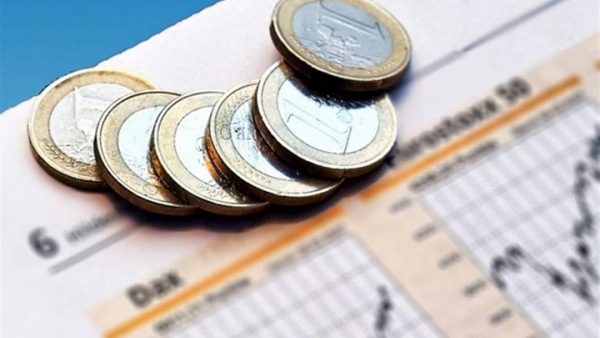
Greek banks are the main financier of investments in renewable energy sources (RES), supporting the green transition, even in difficult times. This was emphasized by Thodoris Tzouros, Senior General Manager, Head of Corporate & Investment Banking of Piraeus Bank, from the podium of the Sixth Sustainability Summit organized by the Economist.
Renewable energy financing corresponds to approximately 8% of the Greek banks’ serviced loan portfolio, while foreign banks are absent from the specific projects, said Mr. Tzouros, who referred to the challenges presented by the market in recent months as well as the opportunities it creates the Recovery and Resilience Fund.
Piraeus Bank is a leading player in the country’s energy transition process, having financed 2.5 billion euros in the last decade in RES projects, while it is the first bank to include a project of this category in the Recovery Fund, he noted. “We work with all domestic and international market players and leverage our expertise and deep knowledge of the industry, taking into account the dynamics and challenges that exist,” he said.
Greece has recorded since 2013 a total increase of 120% in RES capacity, from 4.3GW to 9.4GW, resulting in them accounting for 43% of electricity production from 20% a decade ago. The domestic banking system played a key role in providing long-term financing that amounted to 8 billion euros.
The interest in the RES sector is expected to intensify as the country will need investments of the order of 12 billion euros, of which 9-10 billion euros will come from bank loans, for the implementation of the RePower EU program which provides for the increasing capacity to 19GW by 2030;
Mr. Tzouros pointed out that in the last ten months there have been a series of challenges in the RES sector due to problems in the supply chain, an increase in construction costs, the transition from feed-in tariffs to corporate Power Sales Agreements (PSA), increasing interest rates and saturation of transmission networks. At the same time, however, the Recovery and Resilience Fund creates significant opportunities as it finances 50% of investments on very favorable terms, he added.
Latest News

IMF: US Tariffs Shake Global Economy, Outlook Downbeat
IMF slashes global growth forecast to 2.8% as U.S. tariffs create uncertainty and ‘negative supply shock

First Step Towards New Audiovisual Industry Hub in Drama
The project is set to contribute to the further development of Greece’s film industry and establish Drama as an audiovisual hub in the region

Airbnb Greece – Initial CoS Ruling Deems Tax Circular Unlawful
The case reached the Council of State following annulment applications filed by the Panhellenic Federation of Property Owners (POMIDA)

Mitsotakis Unveils €1 Billion Plan for Housing, Pensioners, Public investments
Greek Prime Minister Kyriakos Mitsotakis has announced a new set of economic support measures, worth 1 billion euros, aiming to provide financial relief to citizens.

Alter Ego Ventures Invests in Pioneering Gaming Company ‘Couch Heroes’
Alter Ego Ventures' participation in the share capital of Couch Heroes marks yet another investment by the Alter Ego Media Group in innovative companies with a focus on technology.

Corruption Still Plagues Greece’s Driving Tests
While traffic accidents continue to claim lives on Greek roads daily, irregularities and under-the-table dealings in the training and testing of new drivers remain disturbingly widespread

Pope Francis Died of Stroke and Heart Failure Vatican Confirms
As news of the official cause of death spread, tributes poured in from across the globe. The 1.4 billion-member Catholic Church is united in grief, remembering a pope who championed inclusion, justice, and compassion

Increase in Both Museum Visits, Revenues for 2024
As expected, the Acropolis was the top archeological site in the country, followed by Sounion, Mycenae, the ancient theater of Epidaurus, and Vergina in northern Greece

Where Greece’s Tourists Come From: A Look at 2025’s Top Visitor Markets
The United Kingdom continues to hold the top spot as the largest source of incoming tourism, with 5.6 million seats booked for Greece this summer — up 2.2% from last year. This accounts for 20% of all international air traffic to Greece

Pope Francis: A Pontiff Who Reshaped the Papacy and Sparked a Global Conversation
His first words from the balcony of St. Peter’s Basilica—“Brothers and sisters, good evening”—set the tone for a pontificate that would challenge norms, favor mercy over dogma, and bring the papacy closer to the people.












![Πλημμύρες: Σημειώθηκαν σε επίπεδα ρεκόρ στην Ευρώπη το 2024 [γράφημα]](https://www.ot.gr/wp-content/uploads/2025/04/FLOOD_HUNGRY-90x90.jpg)



![Ξενοδοχεία: Μεγάλο το ενδιαφέρον για επενδύσεις στην Ελλάδα – Η θέση της Αθήνας [γραφήματα]](https://www.ot.gr/wp-content/uploads/2025/03/Athens-hotels-90x90.jpg)
























 Αριθμός Πιστοποίησης
Αριθμός Πιστοποίησης